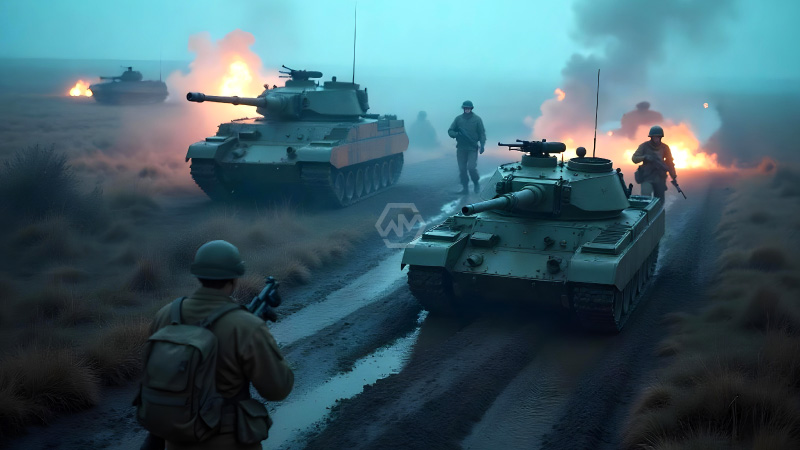- Ukraine launches new offensive operations in Russia’s Kursk region, targeting a command post near Belaya.
- Mixed reports emerge, with Ukraine claiming progress and Russia stating it repelled attacks.
- Gas transit halt and North Korean troop casualties highlight broader implications of the conflict.
Ukraine has intensified its operations in the Kursk region, marking a significant escalation in its ongoing conflict with Russia. Ukrainian forces reported precision strikes on a Russian military command post and launched coordinated ground operations on multiple fronts, using armored vehicles and demining equipment.
In response, Russia’s Defense Ministry reported repelling Ukrainian assaults and accused Kyiv of scorched-earth tactics in contested areas. The conflict has drawn international attention, with Hungary criticizing Ukraine for halting gas transit, leading to a spike in European energy prices.
Escalation in Kursk: Ukraine’s Offensive Shifts the Conflict
The Ukrainian military’s offensive in Russia’s Kursk region signals a renewed push to gain leverage on the battlefield. Reports of a precision strike near Belaya and coordinated attacks in multiple directions highlight Kyiv’s strategic shift toward offensive operations. Ukrainian officials assert that their forces have made tactical gains, disrupting Russian defenses.
Russia, however, paints a different picture, claiming to have repelled two major offensives in Kursk Oblast. Acting Governor Alexander Khinshtein noted the arrival of Russian Deputy Defense Minister Yunus-bek Yevkurov, possibly indicating Moscow’s increased focus on stabilizing the region.
The conflict’s impact extends beyond the battlefield, with Hungary accusing Ukraine of exacerbating Europe’s energy crisis by halting Russian gas transit. This decision reportedly caused a 20% rise in natural gas prices, deepening economic strains across the continent.
Adding to the complexity, North Korean troops reportedly suffered heavy casualties while supporting Russian forces. The use of these soldiers in high-risk “human wave” tactics highlights the growing international involvement in the conflict, raising concerns about the human and political costs.
The Kursk offensive illustrates the evolving dynamics of the Ukraine-Russia conflict, with far-reaching implications for both regional stability and global geopolitics.
“Kursk Oblast, good news! Russia is getting what it deserves.” – Andrii Yermak



